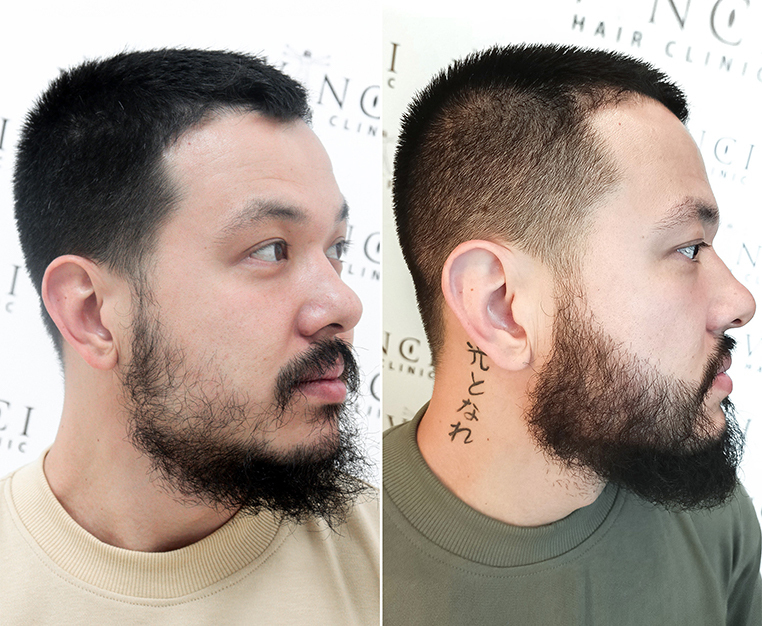Maintaining a healthy head of hair is not easy, particularly if hair loss develops as a result of skin conditions. Scalp psoriasis is one such skin condition that can cause us problems.
Psoriasis is an autoimmune disease that makes skin cells grow faster than their normal cycle. The development of the disease on the scalp can lead indirectly to hair loss, partly as a result of the scratching that it triggers.
“The intense inflammation associated with psoriatic skin lesion can loosen follicle, while frequent scratching and manipulation may cause hair loss,” Adam Mamelak a dermatologist and MD says. Psoriasis appears all over the body, including on the elbows, knees and nails, but nearly half of patients diagnosed with psoriasis develop it on the scalp.
Dermatologist Christine Warren MD, explains some of the unique challenges that come with scalp psoriasis and why it may cause potential hair loss if agitated or left untreated.
Why Does Scalp Psoriasis Cause Hair Loss?
The hair follicles on your head become fragile and brittle when there is increased inflammation due to psoriasis. In these cases, it is tempting to scratch the scalp skin or pick at the scales in exchange for some instant relief.
“When you do that, you can make your scalp psoriasis worse,” says Dr Warren. “As you try to relieve your symptoms with scratching, you could actually be causing some hair loss.”
As a result, we can say that hair loss occurs partly due to inflammation and partly because of the further agitation that comes from scratching.
Is This Hair Loss Temporary Or Permanent?
Dr Warren states that “The only reasons it possibly wouldn’t grow back are if you had chronic, severe scalp psoriasis that was left untreated, or you had scratched so much that you were bleeding or causing sores on your scalp — and that could lead to scarring”.
The hair loss that occurs during scalp psoriasis can be temporary if it is treated in the proper manner. Dr Warren maintains that if the psoriasis is treated properly and brought under control, hair growth will return to its normal levels.
Five Tips for Reducing Hair Loss When You Experience Scalp Psoriasis
Dr Warren offers a few pieces of advice to help manage the symptoms of scalp psoriasis effectively and thereby reduce the chances of hair loss.
-
Avoid Scratching or Picking Scales
Your scalp is a particularly sensitive part of the head. If you apply pressure on this area, by scratching or picking at it, the hair strands could easily lose their strength and fall. When the urge to scratch becomes irresistible, rub the surface of the scalp slowly and gently with the soft part of your fingers.
-
Trim Your Fingernails Regularly
The second preventative measure to avoid harming your scalp is to keep your nails short. “It can sometimes feel like it’s impossible to resist scratching, but you can do less damage to your skin and your hair if your nails are trimmed,” advises Dr Warren. Trimmed fingernails protect you from hair loss, in other words.
-
Be Careful with Haircare
When combing your hair, take care not to rake the psoriasis scales with the comb’s teeth. Avoid hairstyles that require close combing, and apply minimal pressure when washing or combing your hair. Be gentle and soft with your haircare!
-
Select Shampoos Approved by Experts
Hair experts can prescribe the right shampoos for people suffering from scalp psoriasis. You can also buy effective over the counter (OTC) products, most of which contain salicylic acid to soften the scales and cause them to fall off. “Salicylic acid breaks down some of that scale, which is basically dead skin cells,” says Dr Warren.
-
Avoid Blow-drying
Psoriasis makes your scalp drier and your hair brittle. Some shampoos will also make your scalp dry out even more. For those reasons, you should be careful with blow-drying. Your hair doesn’t need any more heat or hot air. According to Dr Warren, it is much better if you simply leave your hair to air dry.
Conclusion
Hair loss is caused by many factors, both genetic and non-genetic. The majority of non-genetic factors are treatable. Autoimmune disorders such as alopecia and psoriasis may be the cause of your hair loss. Don’t mistake the itching on your scalp for dandruff. If the itch persists and your shampoo isn’t helping, it might be the time to speak with an expert. Vinci Hair Clinic is offering free consultations for new clients. Book an appointment by contacting us today!


